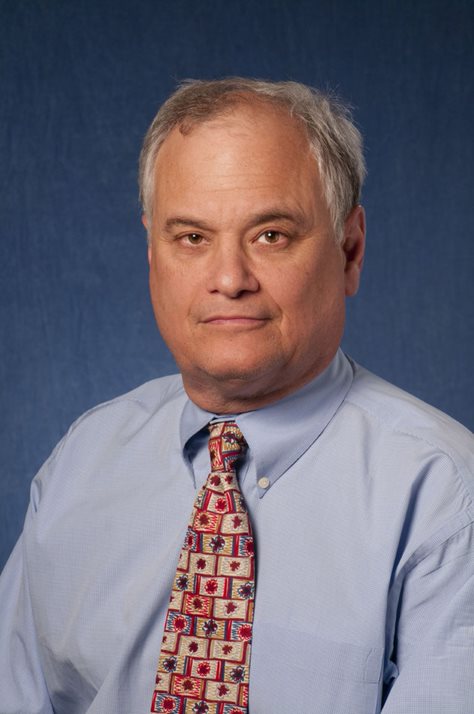
Endocrine News talks to Terry J. Smith, MD, the 2022 Gerald D. Aurbach Laureate for Outstanding Translational Research, who discusses his career focusing on Graves disease, the pharmaceutical he helped develop, and what advice he has for young researchers.
Early in medical school, Terry J. Smith, MD, had more questions about thyroid disease than his professors had concrete answers. When he encountered his first patient with Graves’ disease, more unanswered questions sparked a curiosity that would evolve into a successful and productive career in thyroid research.
Smith has been awarded the 2022 Gerald D. Aurbach Award for Outstanding Translational Research — an award recognizing outstanding contributions to research that accelerate the transition of scientific discoveries into clinical applications. As the Frederick G.L. Huetwell Professor in Ophthalmology and Visual Sciences and Professor of Internal Medicine at the University of Michigan Medical School in Ann Arbor, Mich., he and his team have mapped the mechanisms involved in tissue remodeling occurring in thyroid-associated ophthalmopathy (TAO), a disfiguring and potentially blinding disease. Their discoveries have led to the use of teprotumumab—the first FDA-approved drug to treat TAO.
Endocrine News spoke with Smith to learn more about his research and asked his advice for young researchers who, themselves may have more questions than answers.
Endocrine News: Dr. Gerald Aurbach was the Society’s 68th president and a renowned researcher and clinician. Can you share your thoughts when you heard the news of your honor?
Terry Smith: The acknowledgement of our work by the scientific and medical communities is gratifying. It in many ways validates the entire road trip.
Many people are primarily interested in perpetuating pat notions about the way things work. We must continue preparing young minds…that is, individuals who are willing and able to think outside the box. It’s not the loudest voice in the room that should necessarily hold sway.
EN: How did the study of the Graves’ disease become the pinpoint of your life’s work?
Smith: I was lucky enough, as a beginning freshman medical student, to be adopted by a thyroid researcher. He raised a number of important questions that got me thinking about the thyroid as an important regulator of metabolism, growth, and energy turnover. Then, later in my medical school experience, I encountered a patient with Graves’ disease. I asked a few questions of my teachers and did not get what I felt at the time were satisfactory answers. For a young student, this can lead to more questions. I gleaned that our understanding of Graves’ disease and other autoimmune diseases really was inadequate. Maybe that explained why there weren’t particularly effective or safe treatments. The topic became quite intriguing, and I was off to the races.
EN: In January 2020, you and your team were granted FDA approval for teprotumumab, the first approved drug to treat thyroid-associated orbitopathy (TAO). Somewhere between 30% and 50% of people with Graves’ disease show signs of TAO. How does teprotumumab help these patients?
Smith: It treats bulging eyes, double vision, pain, inflammation, and eyelid swelling. All of these manifestations are dramatically improved in many patients treated with the drug. Use of the drug in TAO grew out of our better understanding of disease mechanisms. We discovered several molecular and cellular events involving the insulin-like growth factor I receptor that appeared to be connected to TAO development. Instead of using medications that may have broad and relatively untargeted actions, we were armed with considerably more precise insights into the disease and how it develops. That information came from a couple of decades of research, both in our lab at UCLA and the University of Michigan, and from the contributions of other investigators around the world. I hasten to add that this entire success — the development of the drug and the many mechanistic insights — was a group effort. We also had a lot of luck; we guessed correctly a few times, and voila!
I encountered a patient with Graves’ disease. I asked a few questions of my teachers and did not get what I felt at the time were satisfactory answers. For a young student, this can lead to more questions. I gleaned that our understanding of Graves’ disease and other autoimmune diseases really was inadequate.
EN: What words of wisdom do you share with young researchers, words of advice that you have gleaned from your years of experience?
Smith: I stress the importance of not being afraid of asking provocative questions that might be dismissed by others, especially by those who are more senior. It’s important to identify substantial problems and to then pursue these with well-reasoned studies potentially leading to their solutions. One should always apply stringent controls and use fact-based logic in solving those problems.
Many people are primarily interested in perpetuating pat notions about the way things work. We must continue preparing young minds…that is, individuals who are willing and able to think outside the box. It’s not the loudest voice in the room that should necessarily hold sway.
— Fauntleroy Shaw is a freelance writer based in Carmel, IN. She is a regular contributor to Endocrine News.

